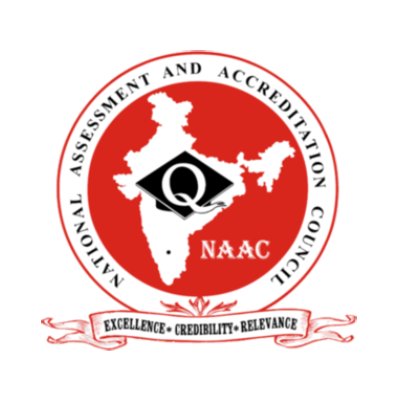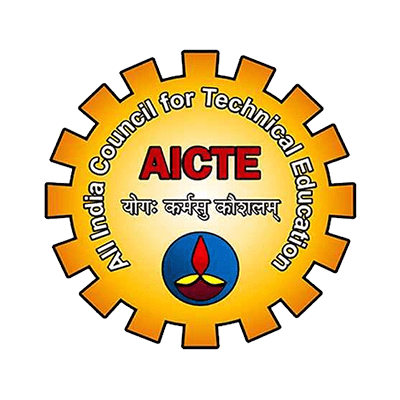
Rachana Chattopadhyay
Education : Ph.D. (Calcutta University, Under the Fellowship of ISI, Kolkata)
Specialization : Organizational Behaviour & Human Resources Management
Area of Interest : Organisational Behaviour, Performance Management, Training and Development, Emotional Intelligence and Stress Management
Designation : Professor - Organizational Behaviour and Human Resources; Dean (Academics)
Contact: +91-33-6652 9662
Email: r.chattopadhyay@imi-k.edu.in
Journal Articles
- Chattopadhyay, R. (2024). Prolonged Organizational Citizenship Behavior and Its Impact on Nurses’ Mental Health: A Time to Rethink. International Journal of Organization Theory and Behavior, 27(3), 168–184. https://doi.org/10.1108/IJOTB-01-2023-0030
- Chattopadhyay, R. (2021). Is Performance Evaluation Gendered for Behavioral Dimension? International Journal of Productivity and Performance Management, 70(3), 489–506. https://doi.org/10.1108/IJPPM-09-2019-0453
- Chattopadhyay, R. (2020). Journey of Neuroscience: Marketing Management to Organizational Behavior. Management Research Review, 43(9), 1063–1079. https://doi.org/10.1108/MRR-10-2019-0456
- Chattopadhyay, R. (2018). Interactional Justice Related Bias and Its Impact on Appraiser’s Decision Making Process: An Experimental Approach. Journal of Operation and Strategic Planning, 1(2), 185–203. https://doi.org/10.1177/2516600X18814618
- Chattopadhyay, R. (2017). Impact of Forced Distribution System of Performance Evaluation on Organizational Citizenship Behavior. Global Business Review, 20(3), 1–12. https://doi.org/10.1177/0972150917721819
- Platow, M. J., Eggins, R. A., Chattopadhyay, R., et al. (2013). Two Experimental Tests of Relational Models of Procedural Justice: Non-instrumental Voice and Authority Group Membership. British Journal of Social Psychology, 52(2), 361–376. https://doi.org/10.1111/j.2044-8309.2011.02083.x
- Chattopadhyay, R., & Ghosh, A. K. (2012). Performance Appraisal Based on a Forced Distribution System: Its Drawbacks and Remedies. International Journal of Productivity and Performance Management, 61(8), 881–896. https://doi.org/10.1108/17410401211277138
- Chattopadhyay, R., & Ghosh, A. K. (2008). Entrepreneurial Intention Model Based Quantitative Approach to Estimate Entrepreneurial Success. Journal of Small Business and Entrepreneurship, 21(1), 1–22. https://doi.org/10.1080/08276331.2008.10593410
- Chattopadhyay, R. (2008). Use of Voice Manipulation to Overcome Organizational Resistance: An Experimental Study Based on the Perception of the Bank Employees. The ICFAIAN Journal of Management Research, 7(9), 16–26. https://www.iupindia.in/908/IJMR_Voice_Manipulation_16.html
- Chattopadhyay, R. (2007). Attribution Style and Entrepreneurial Success: A Study Based on Indian Culture. Journal of Enterprising Culture, 15(3), 315–316. https://doi.org/10.1142/S0218495807000162
- Chattopadhyay, R., & Ghosh, A. (2002). Predicting Entrepreneurial Success: A Socio-psychological Study. Journal of Entrepreneurship, 11(1), 21–31. https://doi.org/10.1177/097135570201100102
- Chattopadhyay, R. (2008). Social Networking and Entrepreneurial Success: A Study Based on Indian Culture. Journal of Asia Entrepreneurship and Sustainability, 4(3), 39–54. (Print Version)
- Chattopadhyay, R., & Modekurti, M. (2008). The Relationship Between Organizational Role Stress and Life Satisfaction Levels Among Women Employees: An Empirical Study. The ICFAIAN Journal of Management Research, 7(5), 25–35. (Print Version)
- Chattopadhyay, R. (2004). Role of Depression, Anxiety and Stress on Natural Language Pattern: An Empirical Study. Journal of Applied Psychological Issues, 10(1), 15–20. (Print Version)
- Chattopadhyay, R., & Ghosh, A. (2002). Effect of Locus of Control on Individualism-Collectivism and Achievement Value: A Study Based on a Group of College Students. Indian Journal of Psychological Issues, 10(1 & 2), 75–79. (Print Version)
- Chattopadhyay, R., & Ghosh, A. (2002). Role of Demographic and Socio-cultural Variables on Entrepreneurial Success: A Study Based on a Group of Entrepreneurs from West Bengal. Social Science International, 18, 83–93. (Print Version)
- Chattopadhyay, R., & Ghosh, A. (2002). Impact of Individualism-Collectivism & Entrepreneurial Status on Entrepreneurial Success. Journal of the Indian Academy of Applied Psychology, 28, 69–74. (Print Version)
Case Studies
Chattopadhyay. R. & Basu. R. (December, 2024), “Are the Goals to Blame When the Boss Explores?” Harvard Business Review, Product #: 8489-HTM-ENG.
Book Chapters:
- Rachana Chattopadhyay (2017). Parental Transformational Leadership Quality and Adolescent Leadership: An Experimental Approach. Psychology: Past, Present and Future (pp. 115–130). In S. Kumar & S. L. Juyal (Eds.). New Delhi: Wisdom Publication.
- Rachana Chattopadhyay (2014). Role of Parental Transformational Leadership for Developing Leadership Skill and Life Satisfaction of Adolescents. In A. Ghosh, D. Dutta Roy & R. Gupta (Eds.), Adolescent Development: Issues and Challenges (pp. 97–110). Psychology Research Unit, Indian Statistical Institute, Kolkata.
- Rachana Chattopadhyay & Anil Kumar Ghosh (2013). Team Performance and Use of Forced Distribution System: Problem and Solution. In B. Srivastava & M. Mohapatra (Eds.), Performance Management & System (pp. 107–116). New Delhi: Excel Books.
- “Gender, Intergroup Relations and Interactional Justice: An Experimental Approach Based on Indian Hindu and Muslim Students”. 13th Annual International Conference on Psychology, Athens Institute of Education and Research, Athens, Greece, May 27–30, 2019.
- “Developing Transformational Leadership Quality within Youth”. Indo-Canadian Conference of Psychology: Past, Present and Future (ICCP-2017), May 2017.
- “Role of Parental Transformational Leadership for Developing Leadership Skill and Life Satisfaction of Adolescents”. National Conference on “Adolescent Development: Issues and Challenges”, ISI Kolkata, January 29–30, 2015.
- “Use of Forced Distribution System in Appraising Employee’s Performance: Its Problem and Solution”. 3rd IIMA International Conference on Advanced Data Analysis, Business Analytics and Intelligence (ICADABAI-2013), April 13–14, 2013.
- “An Effective Use of Procedural Fairness in Overcoming Organizational Resistance and Enhancing Organizational Citizenship Behavior”. European PostDoc Summer School, European Association of Work and Organizational Psychology, Berlin, September 6–12, 2008.
- “A Different Style of Attribution Among Indian Entrepreneurs: An Empirical Studies”. European PostDoc Summer School, European Association of Work and Organizational Psychology, Berlin, September 6–12, 2008.
- “Social Perception of Voice and the Authority’s Group Membership: A Study on Organizational Context”. National Conference on Applied Cognitive Psychology, Psychology Research Unit, Indian Statistical Institute, Kolkata, November 2007.
- “Non-instrumental Voice and Authority’s Group Membership: An Empirical Study Based on Australian and Indian Students” Annual Conference of National Academy of Psychology, Department of Humanities and Social Sciences, IIT Kanpur, December 2007.
- “A Quantitative Approach to Identify Potential Entrepreneurs: A Study Based on Indian Culture” 35th Annual Conference of Society of Australian Social Psychologists, Canberra, April 20–23, 2006.
- “Profile Analysis of Entrepreneur in Indian Culture” 92nd Indian Science Congress, Ahmedabad, January 2005.
- “Impact of Depression, Anxiety and Stress on Natural Language Pattern of Female Student” National Seminar on Enhancing Human Potential: Psychological Perspectives, Dayalbagh Educational Institute, Agra, October 2004.
- “Entrepreneurial Personality Pattern: A Comparative Study on Entrepreneurs and Management Students” 7th International & 38th National Seminar of Indian Academy of Applied Psychology, Jodhpur, October 2003.
- “A Socio-psychological Search for Potential Entrepreneurs” National Seminar on Applied Psychology, Department of Applied Psychology, University of Calcutta, February 2003.
- “Socio-Psychological Approach for Predicting Entrepreneurial Success in Indian Culture: A Study Based on West Bengal and Tripura” 89th Indian Science Congress, Psychology and Educational Section, Young Scientist Award Session, Lucknow, 2002.
- “A Study of Identity Achievement & Motivational Disposition in a Group of Indian Undergraduate Students” International Conference on People and Environment, South Asian Association of Psychologists, February 24–25, 2001.
- “A Study of Feeling Tone Associated with Visual Imagery Evoked by Two North Indian Classical Ragas” National Conference on Research in Clinical Psychology, Association of Clinical Psychologists, Delhi, February 23–26, 2000.
Teaching
- PGDM
- Organizational Behaviour
- Performance Management & Reward System
- Training & Development
- FPM
- Advanced Research in Organizational Behaviour
- Emotional Intelligence and Organizational Stress
Awards
- RASHTRIYA SHIKSHAK SAMMAN – 2024, from the National Education Forum (Government of India), for all the remarkable achievements in the field of education.
- YOUNG SCIENTIST AWARD – 2002, from the Indian Science Congress Association (Ministry of Science and Technology, Government of India).
- Outstanding Paper Award at Emerald Literati Network, 2013.
- Best Paper Award at National Conference on “Adolescent Development: Issues and Challenges”, 2014.
Other Activities
Dr. Rachana Chattopadhyay has played a pivotal role in designing and delivering a wide range of Management Development Programmes (MDPs) across leading public and private sector organizations over the past decade. Her teaching in these programmes reflects a strong orientation towards developing leadership capabilities, team effectiveness, and behavioral competencies among working professionals at different levels of management.
One of her most prominent areas of engagement has been with CESC Ltd., where she has consistently conducted multiple programmes on building and developing high-performance teams, managerial effectiveness, and value-creating mindsets. These sessions were tailored to cater to both young recruits and high-performing executives, showcasing her versatility in addressing diverse learning needs.
She has also significantly contributed to executive learning at LIC of India, where she co-designed and delivered general management programmes and leadership training modules aimed at grooming senior and mid-level managers. Dr. Chattopadhyay has been actively involved in induction and leadership programmes for GRSE Ltd., particularly the “Towards the Next Orbit” series, which focused on enabling new recruits to transition effectively into managerial roles.
Moreover, she has facilitated long-duration certificate programmes in general management for organizations like Phillips Carbon Black Ltd. and CESC, signifying her capability to sustain learner engagement over extended training formats and develop holistic managerial skill sets.
Across all programmes, her thematic focus has consistently aligned with leadership development, team building, managerial communication, and organizational behavior—critical areas in today’s dynamic business environment. Her MDP engagements reflect a balance between academic rigor and real-world relevance, equipping participants with practical insights and behavioral tools to enhance individual and organizational performance.
Her expertise in organizational behavior has been further disseminated through multiple AICTE-sponsored FDPs under the ATAL Academy, where she addressed behavioral aspects of management for faculty and professionals nationwide.












